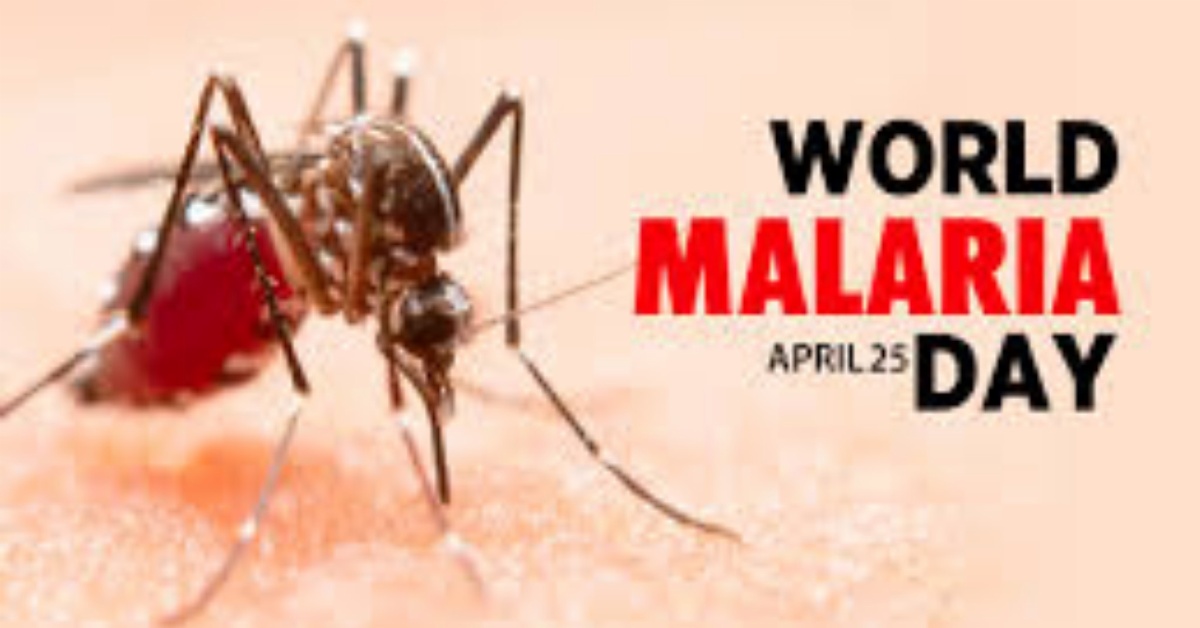The National Malaria Control Programme (NMCP) has commemorated World Malaria Day 2025 with a national press briefing held on Wednesday at the Medical Stores in New England Ville, Freetown.
The event, themed “Malaria Ends with Us: Reinvest, Reimagine, Reignite,” served as a rallying call for renewed political will, community leadership, and innovation in the fight against malaria.
Chairing the ceremony, Dr. Harold Thomas, Health Education Programme Manager, emphasized that the burden of malaria is a shared responsibility that requires every citizen’s active involvement. He highlighted the theme’s focus on rethinking approaches, strengthening partnerships, and reigniting global and local efforts to end malaria.
“Malaria is not just a disease—it’s a societal challenge. It requires that we go beyond what we’ve already done. We must innovate, empower communities, and reignite the political commitment necessary to win this fight,” Dr. Thomas declared.
He praised the progress made in life-saving diagnostics, treatments, and the introduction of malaria vaccines and digital tools, while acknowledging ongoing obstacles such as health system underfunding, climate-driven transmission patterns, and resistance to drugs and insecticides. He noted that malaria continues to claim over 600,000 lives globally each year—primarily children under five.
“A child with malaria, if untreated, can die within 72 hours. That’s how serious it is,” he stressed, urging families to seek timely diagnosis and treatment at health facilities.
In her remarks, WHO Representative Dr. Ganda echoed the urgency to tackle malaria head-on. She confirmed that although the current strategic plan expires this year, they are updating it to reflect new challenges and opportunities.
“The burden of eliminating malaria rests on us. Our target remains 2030, in line with the Global Malaria Program. We must ensure that no mother or child dies of malaria,” she said. She encouraged families to visit health facilities for free diagnosis and treatment, noting that purchasing malaria medicines is unnecessary and discouraged.
Matron Irene M. Sesay, the Head of Malaria in Pregnancy at the National Malaria Control Programme (NMCP), presented an update on the ongoing malaria situation in Sierra Leone. She emphasized that malaria remains endemic in the country, with stable year-round transmission, and that children under five and pregnant women are especially vulnerable.
In 2024, Sierra Leone recorded over two million malaria cases, with the disease continuing to be a leading cause of illness and death, contributing to nearly 20% of child mortality.
Key Highlights from NMCP’s 2024 Report:
Malaria case reporting surpassed expectations, with 103.8% coverage against the target.
97.2% of suspected malaria cases were tested in public health facilities.
91.1% of confirmed cases received treatment at public health facilities, but community testing and treatment coverage lagged, with only 58.4% and 86.3%, respectively.
363,738 insecticide-treated nets were distributed, covering 78.2% of the target.
78.3% of pregnant women received three or more doses of preventive malaria treatment (IPTp).
Despite these advancements, Matron Sesay highlighted several challenges in meeting the NMCP’s strategic goals for 2025, particularly the 75% reduction in malaria deaths and cases compared to 2015. Funding constraints, reliance on donors, weak surveillance systems, and poor community health-seeking behavior continue to impede progress.
Strategic Plan and the Way Forward: The National Malaria Elimination Strategic Plan (2021–2025) outlines ambitious goals for a malaria-free Sierra Leone, focusing on aggressive prevention and control strategies. Key interventions include:
Strengthening data systems and surveillance.
Improving case management and logistics for supplies.
Expanding community health worker training and support.
Scaling up social behavior change communication.
Leveraging digital tools for program delivery and monitoring.
Matron Sesay also reported promising results in efforts to reduce malaria among children under five, with the incidence dropping from 754 per 1,000 in 2023 to 603 in 2024. Inpatient malaria deaths have also decreased to 88 per 100,000.
Partnership and Resource Mobilization: The NMCP’s work relies heavily on funding from the Global Fund, USAID/PMI, WHO, UNICEF, and other Roll Back Malaria (RBM) partners. However, recent disruptions, such as the USAID PMI stop-work order, have heightened the need for increased government support and public-private partnerships. Matron Sesay also emphasized the importance of establishing an End Malaria Council and expanding community outreach efforts to ensure the sustainability of malaria control initiatives in Sierra Leone.
As Sierra Leone joins the global community to mark World Malaria Day on April 25th, health authorities are calling on all stakeholders—government, private sector, donors, communities, and individuals—to take up their role in the fight against malaria. With continued investment, innovation, and unity of purpose, a malaria-free Sierra Leone is within reach.











